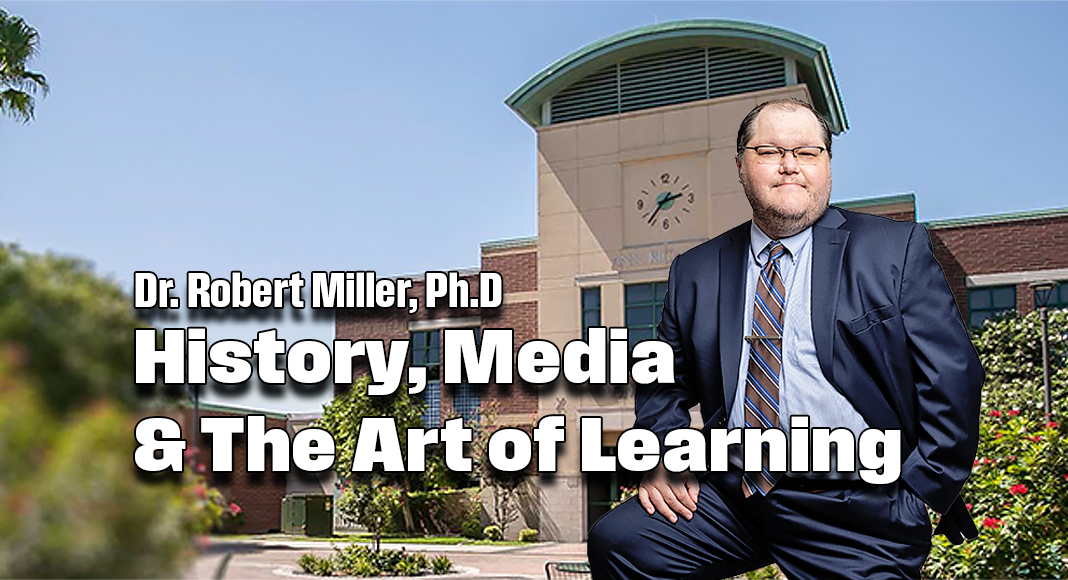
Texas Border Business
By Joey Gomez
McALLEN, TEXAS – Robert Miller, Ph.D., believes education should be universal. Beyond the standard assignments and routine of the college experience, education should enable students to discover lessons and frameworks that they can apply in their future careers as well as their everyday lives.
Highlighting his attempt to get students involved, Miller said his recent Cold War Retrospective film series was an attempt to blend history with community engagement, which attracted over 100 students, faculty and visitors per screening.
“I think these series are a great way to spark vibrant academic discourse outside of the classroom and really get students to be involved,” Miller said. “They were staying late and asking questions. They were feeling a lot more comfortable with their professors that they were there and talking on an even playing field rather than kind of, you know, oh, scary. There’s a faculty member and I like to see that. And I saw some of my own students. I incentivize them to go to these events, and I saw them make connections in assignments and in our class.”
The nine-part event showcased iconic films and TV series from the Cold War era including Rocky IV, Invasion of the Body Snatchers, The Thing and Dr. Strangelove, which allowed students and community members to explore cultural artifacts from the Cold War, providing insight into the fears and societal anxieties of the era.
The series fostered critical discussions about media consumption, drawing parallels between historical and contemporary cultural trends.
Learning to communicate, establishing educated arguments and especially involvement lay at the heart of what it means to succeed in higher education, he said.
“Whether it’s in their future careers or applying for a grant, students need to know that there is an effective way to communicate, which from a history perspective goes beyond just knowing George Washington’s birthday for example,” Miller said. “I much rather prefer students learn how to look at large amounts of information and discover what the importance is of it all and prioritize that. Are you able to construct a cogent argument? Are you able to communicate that to others? I think our faculty does that. And I think that’s one reason that our students succeed when they leave my class.”
STC History Department Chair Annie Liss, Ph.D., said Miller’s efforts to bring together faculty and students is having an impact on how important topics are discussed both at the academic and community level.
“Dr. Miller’s film series are essential for fostering communities of intellectual engagement among students,” Liss said “The series provides an opportunity for faculty from all different disciplines to collaborate.”
Miller said he is continuing his film series by holding a Vietnam War retrospective on the conflict’s 50th anniversary, which began this fall and will continue in spring 2025. “Now we plan to continue this event by showing Vietnam War films and having speakers host discussions about their experiences. It’s really eye opening to show how the media that we consume, even pop culture, is infused with the culture













